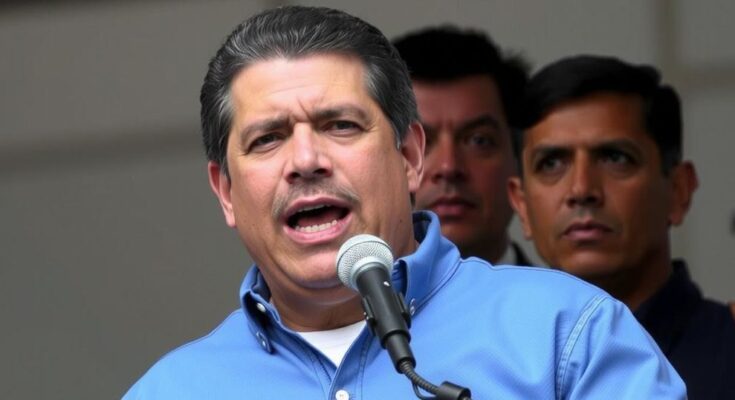Costa Rica, Ecuador, Panama, and the Dominican Republic condemned Nicolás Maduro’s inauguration, viewing it as a product of electoral fraud. They emphasize their support for opposition leader Edmundo González Urrutia, who claims victory in recent elections and denounces the ceremony as a coup. The ADD aims to work with the international community to promote democracy and address human rights violations in Venezuela.
On Saturday, Costa Rica, Ecuador, Panama, and the Dominican Republic expressed their firm opposition to the inauguration of President Nicolás Maduro for a third term in Venezuela. The four nations, members of the Alliance for Development in Democracy (ADD), condemned what they termed an “illegitimate inauguration act” on January 10, asserting that it stemmed from “electoral fraud imposed through state terror against the Venezuelan people.”
Maduro, who has been in power since 2013, was sworn in during a ceremony that drew criticism from the United States, the European Union, and various Latin American countries. Opposition candidate Edmundo González Urrutia alleged that he emerged victorious in the presidential elections held on July 28 and labeled the inauguration an “act of coup d’état.” He further stated, “He crowns himself dictator,” referring to Maduro’s self-appointment.
The ADD claimed there is substantial evidence indicating that voters supported González Urrutia in a peaceful and extensive manner during the elections. Despite the Venezuelan electoral authority declaring Maduro the victor with 52% of the ballots, there has been no release of the detailed electoral count, as mandated by law. In contrast, the opposition contends González Urrutia won 70% of the vote. The ADD vowed to collaborate with the international community to facilitate a democratic transition in Venezuela, aiming to conclude the current climate of oppression and systematic human rights violations.
Alfredo Romero, the president of the NGO Foro Penal, reported 49 politically motivated arrests in Venezuela since the beginning of the year. United Nations Secretary-General António Guterres expressed his concern regarding the situation in Venezuela and called for the release of all individuals detained arbitrarily.
The current political climate in Venezuela is marked by significant contention surrounding the legitimacy of the elected government. Nicolás Maduro’s presidency has faced allegations of authoritarianism and electoral fraud, particularly following disputed elections. A coalition of Latin American nations, the ADD, raises concerns about human rights violations and advocates for democratic governance in the region. The international community, led by strong entities such as the United States and the European Union, also takes an interest in the unfolding situation, emphasizing the need for transparency and fair electoral processes.
In conclusion, the rejection of Nicolás Maduro’s inauguration by Costa Rica, Ecuador, Panama, and the Dominican Republic highlights the ongoing strife regarding electoral legitimacy in Venezuela. The claims of widespread electoral fraud, alongside serious allegations of human rights abuses, underscore the urgent need for international support in facilitating a democratic transition. The coordinated stance taken by the ADD reflects a collective commitment to safeguarding democracy in the region and addressing the grievances of the Venezuelan people.
Original Source: ticotimes.net




